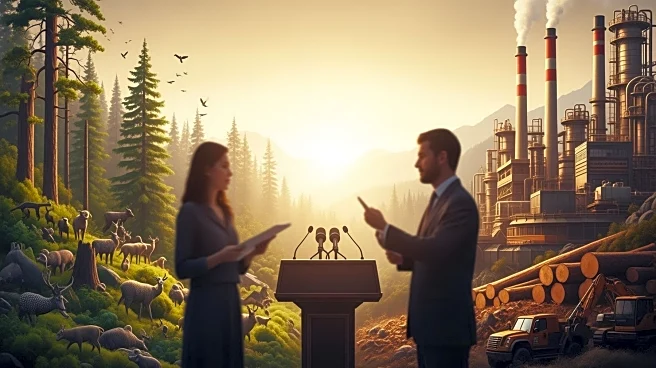What's Happening?
President Trump is attempting to overturn a rule established during the Clinton administration that restricts timber harvesting and development on 59 million acres of National Forest lands. This move is part
of a broader effort to stimulate America's timber industry, which many conservatives believe has been stifled by environmental regulations. Despite these efforts, the anticipated boom in the timber industry may not materialize as expected. The industry faces several challenges, including environmental concerns, legal hurdles, and market dynamics that could impede the expansion of logging activities.
Why It's Important?
The reversal of the Clinton-era rule could have significant implications for the U.S. timber industry and environmental policy. If successful, it may lead to increased logging activities, potentially boosting economic growth in regions dependent on timber. However, this action could also spark environmental debates and legal challenges from conservation groups concerned about the impact on forest ecosystems and biodiversity. The decision may influence public policy discussions on balancing economic interests with environmental protection, affecting stakeholders ranging from industry players to environmental advocates.
What's Next?
The potential reversal of the logging restrictions is likely to face legal challenges from environmental groups, which could delay or alter the implementation of the policy. Additionally, the administration may need to navigate complex regulatory processes and address public concerns about environmental impacts. Stakeholders, including industry leaders and conservationists, are expected to engage in discussions and advocacy efforts to influence the outcome of this policy shift.
Beyond the Headlines
The attempt to reverse logging restrictions highlights broader tensions between economic development and environmental conservation. It raises questions about the long-term sustainability of natural resource management and the role of government in regulating industry practices. This development could also impact cultural attitudes towards conservation and the prioritization of economic growth over environmental stewardship.










